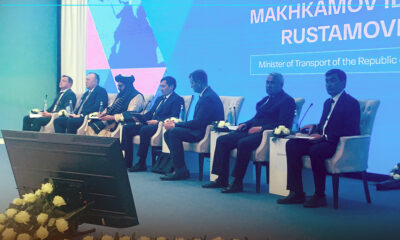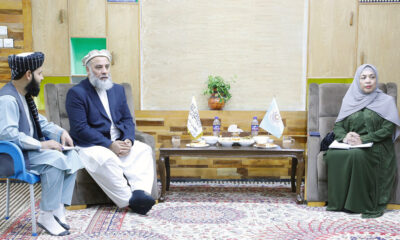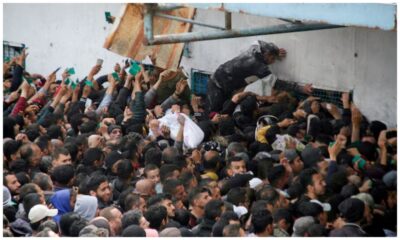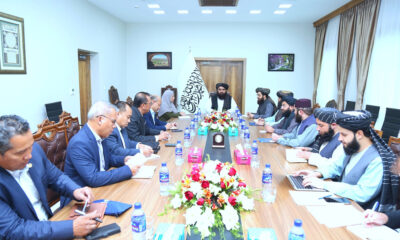Regional
Pakistan cracks down on Imran Khan’s supporters after violence
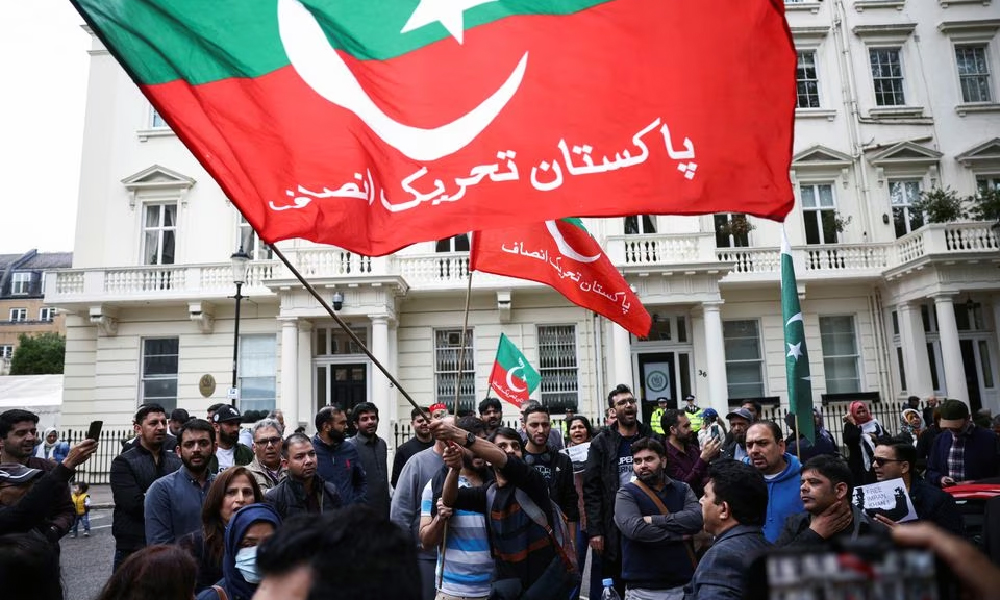
Police in Pakistan have arrested hundreds of supporters of ousted Prime Minister Imran Khan for violence after his arrest on corruption charges, authorities said on Wednesday, deepening a political crisis in the nuclear-armed country, Reuters reported.
Tuesday’s arrest of the former cricket hero, and Pakistan’s most popular politician according to opinion polls, came at a precarious time for the country that is facing a shortage of foreign exchange and a months-long delay of an IMF bailout.
Mobile data services were shut for a second day while Twitter, YouTube and Facebook were disrupted, as security forces tried to restore order after violence killed one person late on Tuesday.
The government said supporters of Khan’s Pakistan Tehreek-e-Insaf (PTI) party had attacked important state buildings and damaged private and public vehicles. Police said 945 of his supporters had been arrested in Punjab province after 25 police vehicles and more than 14 government buildings were set on fire, read the report.
“This can’t be tolerated, the law will take its course,” Planning Minister Ahsan Iqbal told a news conference. “These violent attacks were not the outcome of any public outpouring, they were planned by the PTI rank and file.”
Authorities in three of Pakistan’s four provinces have imposed an emergency order banning all gatherings after Khan’s supporters clashed with police.
Khan, 70, was arrested from the Islamabad High Court by Pakistan’s anti-corruption agency. Police said a court hearing would take place at the police guest house where he was being held in the Islamabad police lines area, Reuters reported.
PTI has called for supporters to gather in the capital and for a “shutdown” across the country of 220 million.
His arrest came a day after the powerful military rebuked him for repeatedly accusing a senior military officer of trying to engineer his assassination and the former armed forces chief of being behind his removal from power last year.
Pakistan’s Dawn newspaper said in an editorial that “the nature and locus of the protests that broke out following Mr Khan’s arrest yesterday signal that public anger is also directed at the military”.
Khan was due to appear for two hearings on Wednesday, Geo News reported, including for a corruption case related to property and another case that alleges Khan unlawfully sold state gifts during his 2018-22 tenure as premier. Khan has denied wrongdoing.
The Pakistani rupee fell 1.3% to a record-low of 288.5 against the U.S. dollar on Wednesday, while the 100-index of the Pakistan Stock Exchange dropped 0.7% in early trading before recouping its losses.
An International Monetary Fund bailout package for Pakistan has been delayed for months even though its foreign exchange reserves are barely enough to cover a month’s imports, Reuters reported.
PTI Vice Chairman Shah Mahmood Qureshi said the party’s senior leadership was in Islamabad to meet Khan and would approach the Supreme Court to challenge an Islamabad High Court order that deemed Khan’s arrest legal.
“We continue to call PTI family workers, supporters and the people of Pakistan onto the streets for peaceful protest against this unconstitutional behaviour,” Qureshi wrote on Twitter.
The protests have disrupted business in several cities. In Peshawar, chicken seller Malagul Khan said his shop and others were destroyed in the clashes, Reuters reported.
Raja Imran, 25, also a Peshawar resident, said, “There is total chaos across the country … There are exams going on and school children will suffer”.
Khan was ousted as prime minister in April 2022 in a parliamentary no-confidence vote. He has not slowed his campaign against the ouster even though he was wounded in a November attack on his convoy as he led a protest march to Islamabad calling for snap general elections.
The corruption case is one of more than 100 registered against Khan since his ouster after four years in power. In most of the cases, Khan faces being barred from holding public office if convicted, with a national election scheduled for November, read the report.
“Imran Khan will have to face the law and if he is cleared he will be contesting elections and if he is found guilty he will have to face the consequences,” Iqbal, the minister, said.
Regional
Iranian president lands in Pakistan for three-day visit to mend ties
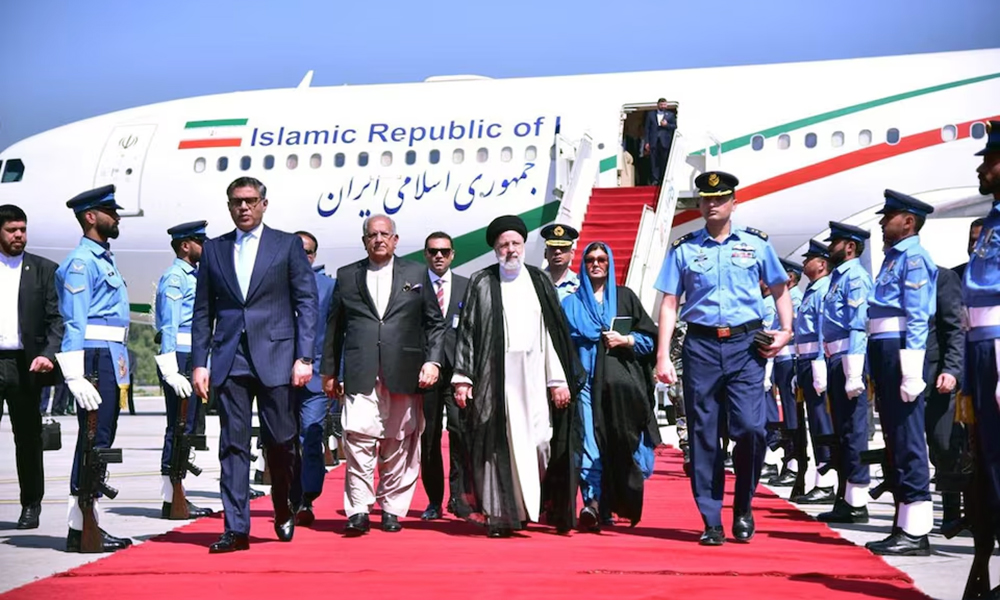
Iranian President Ebrahim Raisi arrived in Islamabad on Monday on a three-day official visit, the foreign office said, amid tight security in the Pakistani capital, Reuters reported.
The visit, which Pakistan’s foreign office said would run until Wednesday, comes as the two Muslim neighbours seek to mend ties after unprecedented tit-for-tat military strikes this year.
“The Iranian president is accompanied by his spouse and a high-level delegation,” Pakistan’s foreign ministry said in a statement, adding that the group also included the foreign minister, other cabinet members and senior officials.
Raisi will meet Prime Minister Shehbaz Sharif and other officials, besides visiting the eastern city of Lahore and southern port city of Karachi, it added.
Major highways in Islamabad were blocked as part of the security measures for Raisi’s arrival, while the government declared a public holiday in Karachi, read the report.
Raisi’s visit is a key step towards normalising ties with Islamabad, but Iran’s supreme Leader Ayatollah Ali Khameni, not the president, has the last say on state matters, such as nuclear policy.
Tension is also high in the Middle East after Iran launched an unprecedented attack on Israel a week ago and central Iran in turn suffered what sources said was an Israeli attack on Friday.
Pakistan and Iran have had a history of rocky relations despite a number of commercial pacts, with Islamabad being historically closer to Saudi Arabia and the United States.
Their highest profile agreement is a stalled gas supply deal signed in 2010 to build a pipeline from Iran’s South Fars gas field to Pakistan’s southern provinces of Balochistan and Sindh, Reuters reported.
Despite Pakistan’s dire need of gas, Islamabad has yet to begin construction of its part of the pipeline, citing fears over U.S. sanctions – a concern Tehran has rejected.
Pakistan said it would seek waivers from the U.S., but Washington has said it does not support the project and warned of the risk of sanctions in doing business with Tehran.
Faced with the possibility of contract breach penalties running into the billions of dollars, Islamabad recently gave the go-ahead for construction of an 80-km (50-mile) stretch of the pipeline.
Regional
Iran’s foreign minister downplays drone attack, says Tehran investigating
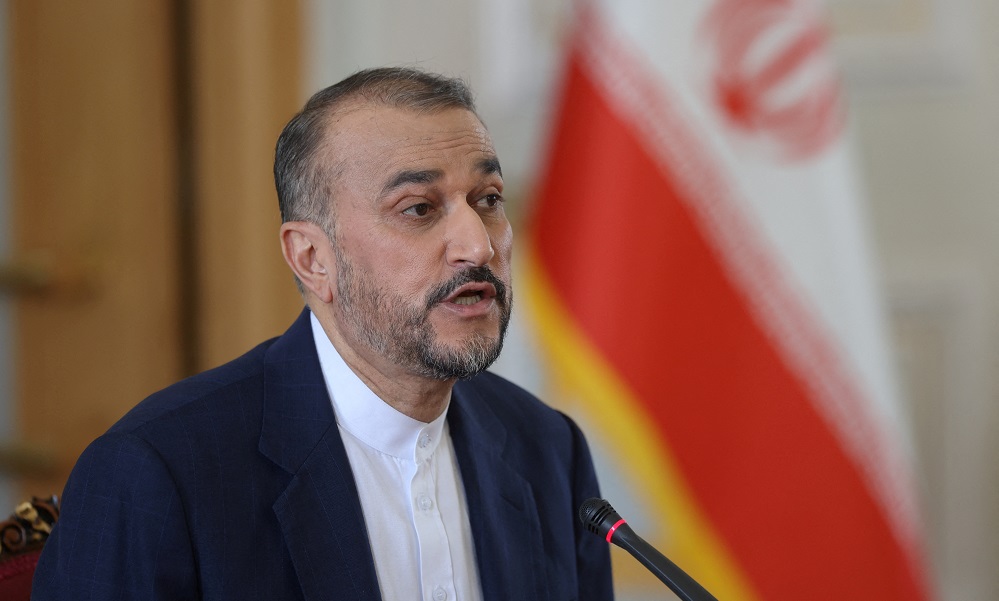
Iran’s foreign minister on Friday said Tehran was investigating an overnight attack on Iran, adding that so far a link to Israel had not been proven as he downplayed the strike.
Iranian Foreign Minister Hossein Amirabdollahian told NBC News the drones took off from inside Iran and flew for a few hundred meters before being downed, Reuters reported.
“They’re … more like toys that our children play with, not drones,” Amirabdollahian said.
“It has not been proved to us that there is a connection between these and Israel,” he said, adding that Iran was investigating the matter but that media reports were not accurate, according to Tehran’s information.
Iranian media and officials described a small number of explosions, which they said resulted from air defenses hitting three drones over Isfahan in central Iran in the early hours of Friday. They referred to the incident as an attack by “infiltrators”, rather than by Israel, obviating the need for retaliation.
Amirabdollahian warned that if Israel retaliated and acted against the interests of Iran, Tehran’s next response would be immediate and at maximum level.
“But if not, then we are done. We are concluded,” he said.
The attack appeared to target an Iranian Air Force base near the city of Isfahan, deep inside the country, but without striking any strategic sites or causing major damage.
Israel has said nothing about the incident. U.S. Secretary of State Antony Blinken said the United States had not been involved in any offensive operations, while the White House said it had no comment.
Regional
Israeli missiles hit site in Iran, ABC News reports

Israeli missiles have hit a site in Iran, ABC News reported late on Thursday, citing a U.S. official, while Iranian state media reported an explosion in the center of the country, days after Iran launched a retaliatory drone strike on Israel, Reuters reported.
Reuters could not immediately confirm the reports.
Iran’s Fars news agency said an explosion was heard at an airport in the central city of Isfahan but the cause was not immediately known. Iran suspended flights over the cities of Isfahan, Shiraz and Tehran, state media reported.
Several Iranian nuclear sites are located in Isfahan province, including Natanz, centerpiece of Iran’s uranium enrichment program, read the report.
Tehran’s Imam Khomeini International Airport was closed to all flights until 0700 GMT, according to a notice to airmen posted on a U.S. Federal Aviation Administration database.
Some Emirates and Flydubai flights that were flying over Iran early on Friday made sudden sharp turns away from the airspace, according to flight paths shown on tracking website Flightradar24.
Israel had said it would retaliate, opens new tab against Iran’s weekend attack, which involved hundreds of drones, opens new tab and missiles in retaliation for a suspected Israeli strike on its embassy compound in Syria. Most of the Iranian drones and missiles were downed before reaching Israeli territory.
Analysts and observers have been raising concerns about the risks of the Israel-Gaza war spreading into the rest of the region.
Iran told the United Nations Security Council on Thursday that Israel “must be compelled to stop any further military adventurism against our interests” as the U.N. secretary-general warned that the Middle East was in a “moment of maximum peril.”
Oil prices and jumped on the reports of the Israeli strike. Brent crude futures rose 2% to $88.86 a barrel, the dollar gained broadly, gold rose 1% and S&P 500 futures dropped 1%, Reuters reported.
Israel’s assault on Gaza began after Palestinian Islamist group Hamas attacked Israel on Oct. 7, killing 1,200, according to Israeli tallies. Israel’s military offensive has killed over 33,000 Palestinians in Gaza, according to the local health ministry.
Iran-backed groups have declared support for Palestinians, launching attacks from Lebanon, Yemen and Iraq, read the report.
-

 Sport5 days ago
Sport5 days agoRashid Khan threatens BBL pullout after Australia postpones Afghanistan T20I series
-

 Sport4 days ago
Sport4 days agoAfghanistan Champions League kicks off with grand opening ceremony
-

 Latest News3 days ago
Latest News3 days agoPakistan’s frontiers minister stresses ‘dignified’ return of Afghan refugees
-

 Regional4 days ago
Regional4 days agoIran’s foreign minister downplays drone attack, says Tehran investigating
-

 Latest News5 days ago
Latest News5 days agoTen people killed by floods in Helmand
-

 Business4 days ago
Business4 days agoAfghanistan’s economic prospects are bleak: World Bank
-

 Latest News4 days ago
Latest News4 days agoMore than 800 Afghan refugees deported from Pakistan in two days
-

 Regional2 days ago
Regional2 days agoIranian president lands in Pakistan for three-day visit to mend ties


